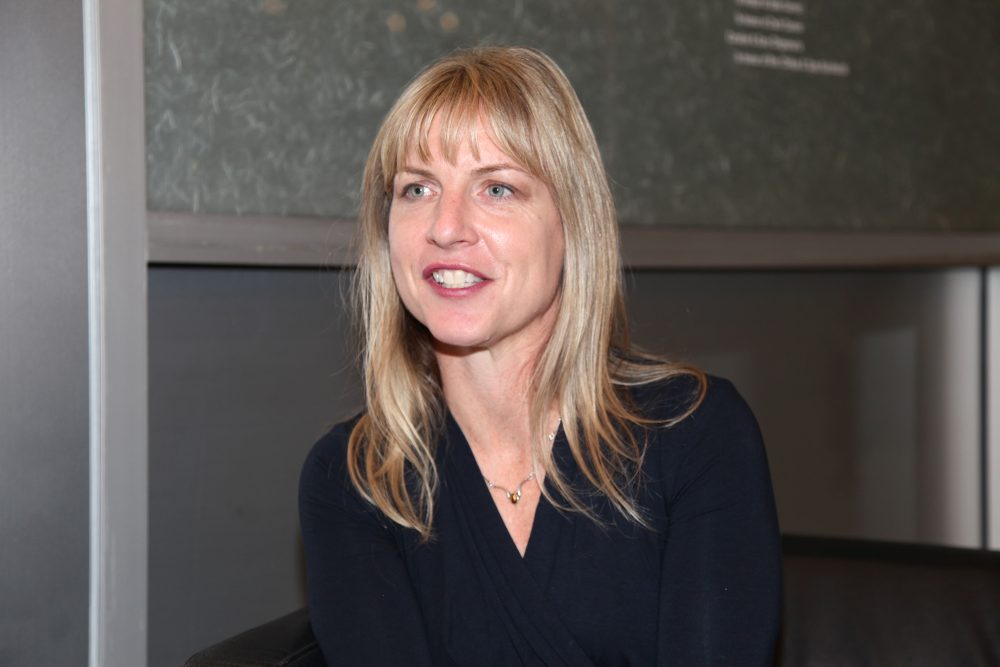
Photo by Aaron Salcido.
Julie Makinen is a former Beijing bureau chief for the Los Angeles Times. She has lived and traveled extensively in Asia, and previously worked for The Washington Post and for what is now known as the international edition of The New York Times. She also was a John S. Knight Journalism Fellow at Stanford University. Before moderating a Zòcalo/UCLA Anderson School of Management event, “Is China Prepared to Lead the Global Economy?” at the National Center for the Preservation of Democracy in downtown Los Angeles, she spoke in the green room about Wonder Woman, Chinese food, and the lost island of California.
Was there a teacher or professor who especially influenced you?
In high school I had a world history teacher, Mr. Hennis, a short, fat, bald man. Before college, that was my only exposure to Asia, and even in that class there were only about two weeks on the end of World War II where we touched on Japan. But Mr. Hennis had been in the Army and he was in the Korean War. So that was the first even inkling I had about Asia. There was no Chinese, Japanese, anything taught in our high school in Cleveland, Ohio. There were no Asian kids in our school, not a single one. There was one Chinese restaurant in my town. So that little glimpse in my 11th-grade world history class was sort of the first portal to Asia. And I remember being very interested and very sad when those two weeks were over and we went back to talking about Europe, which seemed so boring to me!
You’ve lived for several years in both Beijing and Hong Kong. What do you miss about them?
I’d say I miss the Chinese food most, and my Chinese friends, for sure. I don’t miss the traffic. I don’t miss the pollution. But I made great friends in China and had many excellent adventures. And there are so many beautiful parts of China, especially in the remote areas. So I miss just new experiences traveling to those kinds of places.
Who do you think is the world’s most powerful person—Donald Trump or Xi Jinping?
Well according to the cover of The Economist, it’s Xi Jinping. I suspect it’s actually neither of those people. I think both of them have their limitations. But between them, I would say that Xi Jinping commands more respect, and that’s certainly a first in the U.S.-China dynamic, at least in the last 100 years. I think Xi has brought certainly a lot of negative elements of central control, but also definitely some positive elements. And China is ascendant, and people feel that, and that’s not to minimize any of the human rights issues or anything like that. But in terms of a country where people feel like the country is going someplace positive, and doing positive things, and peoples’ lives are getting better, for the most part I think people [in China] feel that way. And I’m not sure we can say the same thing about our country right now.
What are you reading for pleasure?
I’m actually reading some histories of California.
What are you learning about your home state that maybe you hadn’t known before?
Well, the very first thing is the origins of the name California, which comes from a 16th-century Spanish novel [Las sergas de Esplandián by Garci Rodríguez de Montalvo]. The idea was that there was this place, and it basically was filled with Amazonian-type women. And so when the Spanish settlers came from Mexico and then they came up the coast of California, they initially thought it was an island. So the name kind of stuck, which I thought was fascinating. It’s reminiscent of the movie Wonder Woman, because the island where Wonder Woman originates is a very similar type place in the imagination.



